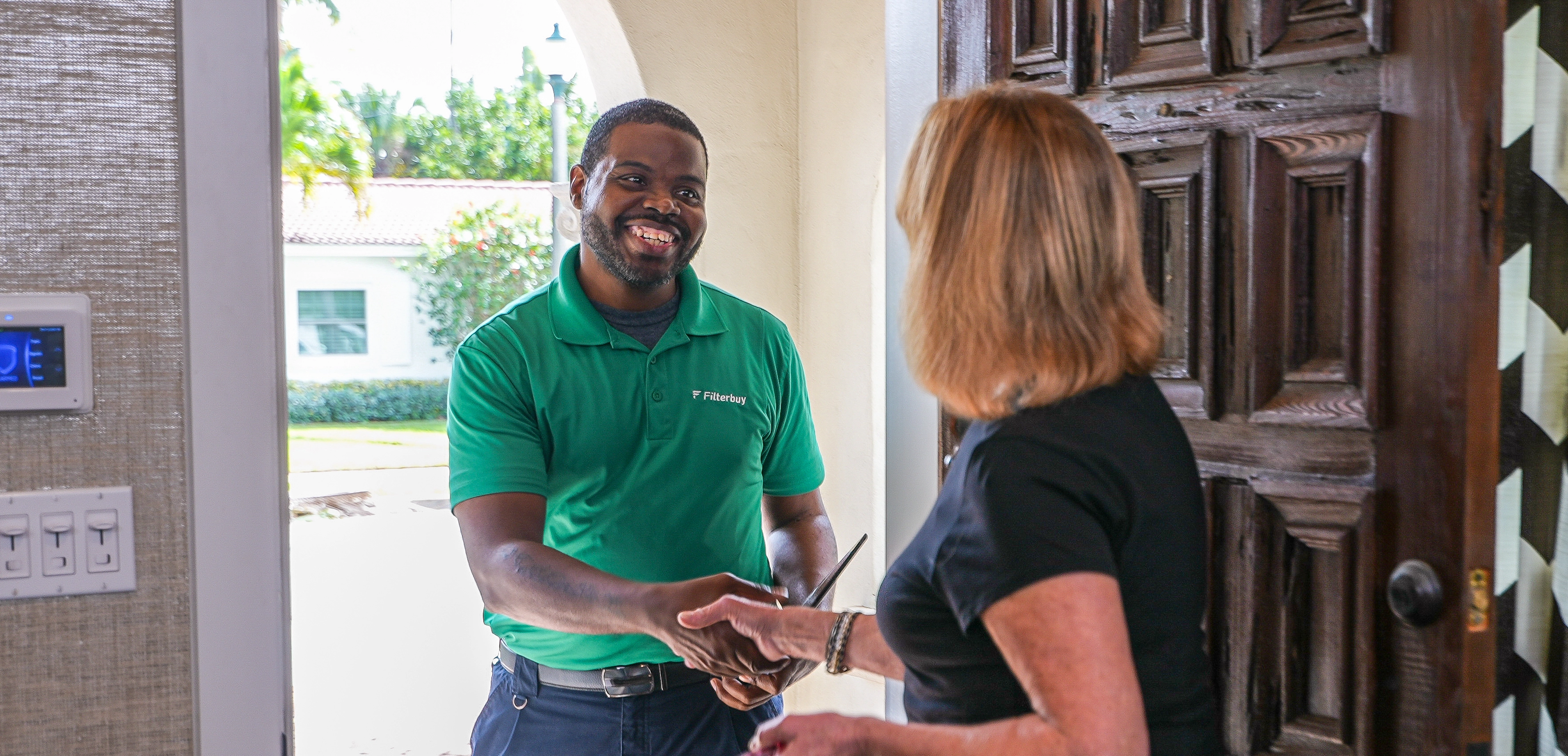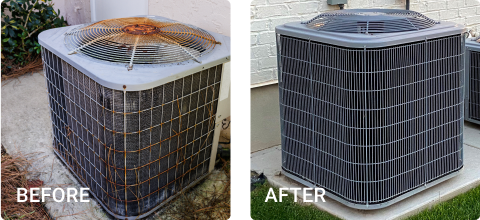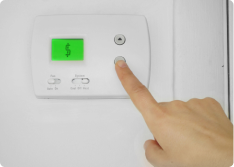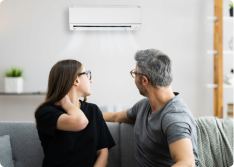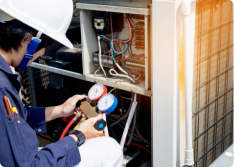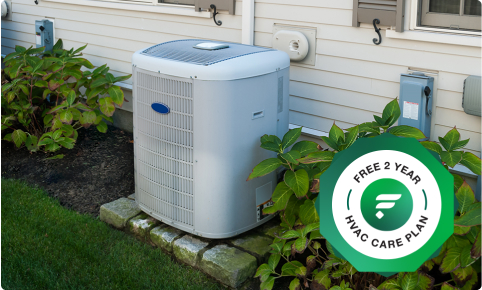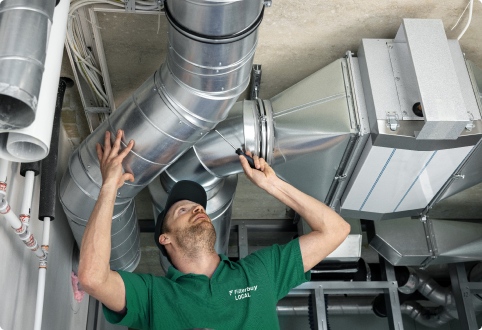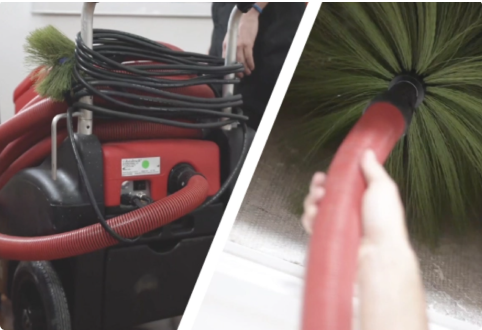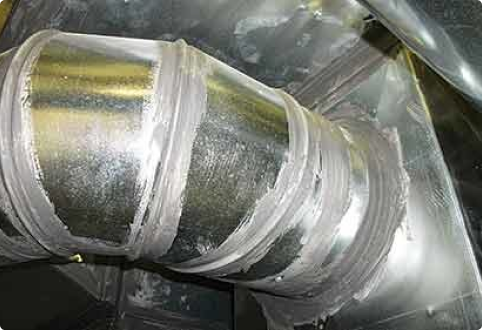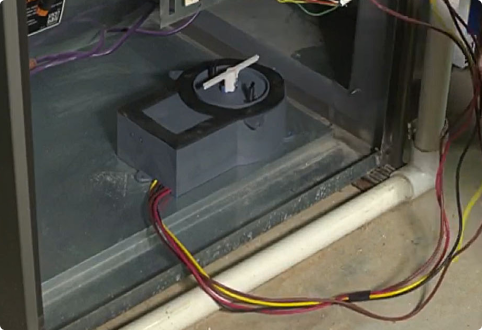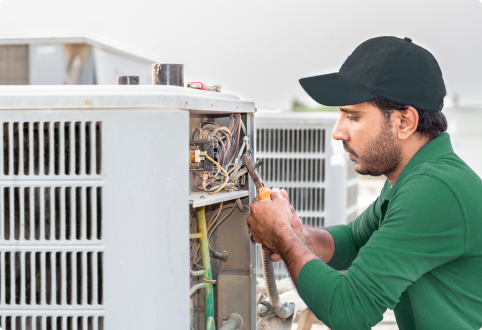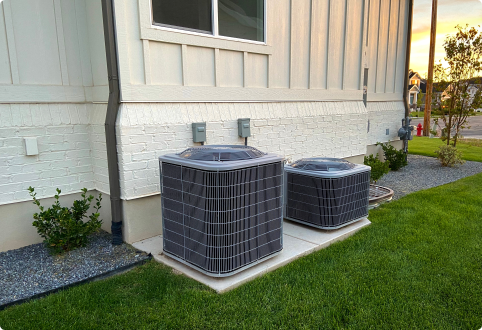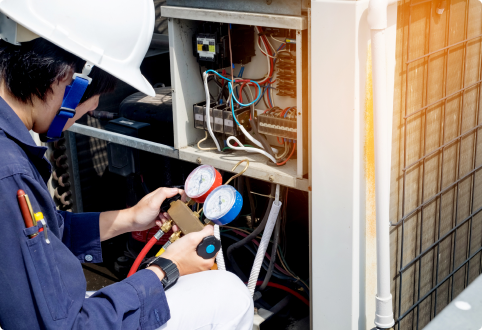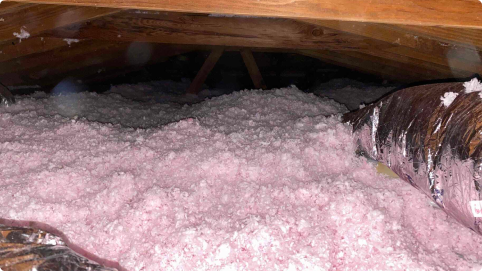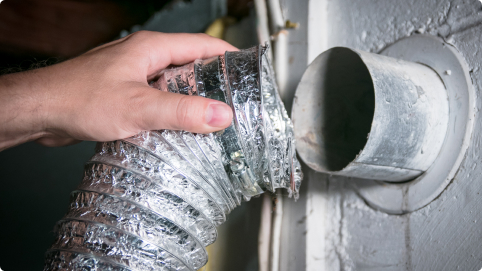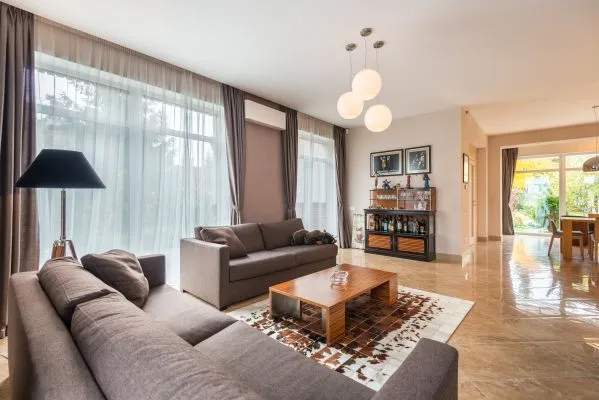Welcome to Filterbuy HVAC Solutions, the best HVAC system installation service company proudly serving in and near the greater Vero Beach, FL area. Please let us know how we can help solve your Vero Beach HVAC system installation needs with professional, affordable, and fast residential and commercial HVAC services by getting a free online quote or by giving our friendly HVAC specialists a call. We look forward to hearing from you!
HVAC Installation Vero Beach
Installing HVAC systems in Vero Beach, FL can be a daunting task for even the most experienced professionals. It requires precision, attention to detail, and an understanding of local regulations and codes. But with the right team on your side, you can ensure that your new system is installed quickly and safely so that you can enjoy all the benefits it provides. From selecting the best components to preparing paperwork and completing the installation, this article outlines everything you need to know about HVAC Installation in Vero Beach.
For those looking to install a new heating or cooling system in their home or business, it helps to understand what goes into an HVAC installation project before diving headfirst into one. Answering questions like 'What type of equipment should I get?' or 'Do I have any special permits required?’ are important steps when planning an efficient installation process. Knowing exactly which components work together best and how they will interact with each other within the context of your particular building's architecture also plays a critical role in ensuring success.
Finally, working with knowledgeable technicians who understand both the technical aspects of installing HVAC systems as well as local regulations is essential for getting quality results from your project. By exploring these topics further throughout this article, we hope to provide readers with comprehensive insight into successfully installing an HVAC system in Vero Beach.
1. Benefits Of Professional HVAC Installation In Vero Beach
Having a reliable and efficient cooling system is essential for any home in the Vero Beach area. Professional HVAC installation services provide numerous benefits that make them an attractive option to many homeowners seeking comfort indoors. This article will focus on discussing some of those advantages, as well as providing helpful tips when selecting a new HVAC unit for your home.
One major advantage of professional HVAC installation is receiving quality workmanship from experienced technicians who are knowledgeable about all aspects of air conditioning systems. These professionals have access to high-end tools and technology that enable them to accurately assess existing systems or install new ones with greater ease and precision than DIY projects can offer. Furthermore, they also guarantee their work so you don’t have to worry about potential problems down the road that may require costly repairs or replacements due to faulty installations.
In addition, having a professionally installed HVAC system has direct implications for energy efficiency. Properly sized units and properly designed ductwork can significantly reduce energy costs while still delivering optimal performance levels year-round. Professionals use sophisticated software programs that allow them to determine the best size of equipment needed for each job, ensuring optimal operation without wasting valuable resources.
Overall, investing in professional HVAC installation services offers numerous advantages over attempting it yourself or relying on untrained workers for assistance. Experienced technicians are capable of performing accurate assessments and installing top-quality products quickly and efficiently; ultimately saving time, money, and effort in the long run while providing superior customer satisfaction along the way. With these points in mind, let us now explore how we can select the right system for our homes.
2. Choosing The Right HVAC System For Your Home
The average HVAC system lasts for 10-15 years and is a considerable investment. Therefore, when selecting an appropriate heating and cooling system for your home in Vero Beach, it is important to consider the size of your house, the needs of each room, and your budget.
To decide on the best option, you should first determine the square footage of your property. This will provide an estimate as to what type of unit you need. The majority of homeowners prefer larger units that can cover their entire residence at once but this may not be necessary or cost-effective depending on how much space you have available. Additionally, if certain rooms require different temperatures than others it would suggest looking into zoning systems that can control specific areas separately from one another.
It is also important to factor in any additional components such as air purifiers or humidifiers that could add further value to your purchase. When making these decisions be sure to take into account energy efficiency ratings to ensure you’re getting the most out of your money while keeping electricity costs low. All told, with careful consideration and research there are plenty of options within reach for finding the right HVAC system for your home in Vero Beach. From here we turn our attention towards avoiding common installation mistakes so that everything gets off on the right foot from day one.
3. Common HVAC Installation Mistakes To Avoid
When it comes to HVAC installations in Vero Beach, you may think that the hard part is over once you have chosen the right system for your home. However, there are still some common mistakes people make during this process that can lead to costly repairs and even more expensive replacements down the road. To avoid these all-too-common hiccups, let's take a look at three of the most frequent blunders when it comes to installing an HVAC system!
To begin with, many homeowners fail to factor in their climate zone or local energy standards into their choice of unit. A small or low-powered air conditioner might be able to cool off a house located in California but completely inadequate for residents living up north where summer temperatures soar above 90 degrees Fahrenheit regularly. Therefore, pay close attention to both regional temperature ranges as well as any local energy regulations that could influence what type of AC system should be installed.
Second, another key point when considering how best to install an HVAC unit is ensuring adequate ventilation throughout the residence. Poorly sealed windows and doors can allow outside air to enter inside and cause severe problems such as mold growth if not addressed swiftly. Additionally, a lack of proper insulation around ducts will also result in lost heat or cold air seeping out through cracks before ever reaching its destination within the home - so double-check those seals!
Finally, one last mistake that often goes overlooked by inexperienced technicians is sizing the unit correctly according to square footage measurements taken beforehand. An undersized air conditioning system won't be able to properly cool down large rooms while an oversized one will run inefficiently (and cost more money). By taking precise measurements ahead of time and then comparing them against manufacturers' recommendations - future owners can save themselves much frustration later on! Understanding the cost of HVAC installation requires analyzing several factors including size and complexity which ultimately determine overall expenditure...
4. Understanding The Cost Of HVAC Installation
The costs of HVAC installation can vary significantly depending on the size and complexity of the system. In general, a standard single-stage HVAC unit with basic components will cost less than a multi-stage or variable-speed model. This is because these more advanced systems require additional hardware and modifications to be made to existing ductwork. Additionally, labor costs associated with the installation process should also be taken into consideration when budgeting for an HVAC upgrade. It’s important to note that obtaining estimates from multiple contractors can help ensure you get the best deal available in your area as prices may differ between companies.
When selecting an HVAC contractor, homeowners should take care to choose one who is experienced in installations similar to their own. It’s also wise to inquire about any special offers they may have available such as rebates or discounts for energy-efficient models. Furthermore, certain locales may offer tax credits for installing high-efficiency units which could potentially reduce overall costs even further.
To maximize savings throughout the life cycle of an HVAC system, homeowners must determine what size air conditioner or heater best suits their needs before purchasing and having it installed. Factors such as home size, climate region, and desired comfort level all play key roles in ensuring a proper fit for both residential and commercial applications alike. Moving forward, this knowledge can then be used by installers and customers together while making informed decisions regarding equipment selection based on specific requirements and budgetary restrictions.
5. Determining The Appropriate Size Of HVAC System For Your Home
When installing a new HVAC system in your Vero Beach home, it is important to consider the size of the system needed for optimal performance. The appropriate size will depend on several factors, including the existing ductwork and building layout. Here are five key elements to take into account when determining what HVAC unit size is right for you:
• Home square footage – A larger space requires more power from an HVAC system.
• Number of rooms – More rooms mean higher energy needs and greater cooling or heating capacity.
• Ceiling height – A taller ceiling may need extra BTUs (British Thermal Units) per hour to cool properly.
• Insulation levels – Poor insulation can cause air leakage and escape that requires additional heating or cooling units.
• Climate conditions – Hotter climates require more powerful systems than cooler environments do.
Due to these variables, it is recommended that homeowners contact local HVAC professionals who can accurately assess their requirements when choosing an installation unit size. Professionals will be able to advise customers on the best type of system suited both practically and financially for their property’s unique characteristics while also taking climate considerations into account. With this expert advice, homeowners should feel confident they have chosen the right-sized unit for their circumstances before investing in a long-term commitment with an extensive installation project. Moving forward, having regular maintenance done by experts can ensure efficient operation and continued peak performance throughout its lifespan.
6. Benefits Of Regular HVAC Maintenance
Regular maintenance of HVAC systems is beneficial to homeowners in Vero Beach due to energy efficiency, enhanced air quality, and better comfort. Research has shown that regularly maintained HVAC systems can save up to 30% on home energy costs compared to those without regular maintenance. This results from reduced wear and tear on system components, as well as improved airflow throughout a home's ventilation network which allows for more efficient heating/cooling delivery. Additionally, regular cleaning and replacement of filters help reduce airborne particles such as dust, pollen, and other allergens, leading to healthier indoor air quality.
Finally, with properly functioning equipment, temperature fluctuations are minimized resulting in greater comfort levels inside the home or workplace. As a bonus, periodic inspections by professional technicians may detect minor issues before they become major problems down the line. In turn, this eliminates expensive repair bills associated with neglected HVAC systems.
Moving forward homeowners in Vero Beach need to be aware of how best to select an experienced technician who can provide competent service when installing or maintaining their HVAC systems.
7. How To Select An Experienced HVAC Installation Technician
Finding an experienced HVAC installation technician in Vero Beach is no coincidence. With the right selection process, a homeowner can benefit from reliable service and cost-effective repairs. Here are some tips to consider when selecting an HVAC installation technician:
1. Check online reviews – Reviews provide insight into customer satisfaction with services rendered. Homeowners should read reviews posted on websites such as Yelp or Angie’s List for feedback on contractors they are considering hiring.
2. Ask about experience and certifications – An experienced contractor will be able to explain their qualifications for providing quality HVAC services, including any certifications relevant to home heating and cooling systems.
3. Request references – Quality contractors should have recent customers who are willing to give references upon request. Contacting these individuals provides homeowners with the assurance that the work performed was satisfactory enough for others to recommend them in the future.
4. Inquire about insurance coverage - Insured technicians protect homeowners from liability if something goes wrong during the service call or repair job, so it's important to confirm that your potential contractor has all necessary insurance coverage before any agreement is made between parties involved.
These considerations go beyond just finding someone available at a good price; proper research ensures a successful project outcome and peace of mind once the job is complete. Knowing what questions must be answered beforehand allows homeowners to select an experienced HVAC installation technician in Vero Beach confidently and move forward toward a comfortable living environment free of disruption caused by unexpected problems down the line.
8. Key Questions To Ask Before HVAC Installation Begins
Before the beginning of an HVAC installation, homeowners in Vero Beach need to ask certain questions. This can help ensure that they make an informed decision and select the best technician for the job. It is also essential to understand the various types of systems available to choose one that meets their needs.
When selecting a technician, asking about experience and certifications are both key components. Those with proper training will be better able to properly install the system, as well as provide any maintenance or service needed down the line. Inquiring about insurance coverage and guarantees on parts and labor should also be considered during this process.
In addition, potential clients may wish to inquire into whether additional features such as air cleaning or humidity control might be beneficial additions to the new system. Asking if there are rebates or tax credits associated with particular products could save money over time. Homeowners should research different types of systems ahead of time so they can have an idea of what type would suit them best before speaking with a technician.
Therefore, before starting an HVAC installation project in Vero Beach, residents should take some time to consider these factors carefully and do their homework by researching different types of systems available on the market today. Doing so will allow them to make an educated decision when choosing not only a technician but also which product will fit their individual needs most effectively.
9. Types Of HVAC Systems Available In Vero Beach
A world of options awaits when it comes to HVAC systems in Vero Beach - a seemingly endless universe of possibilities that can leave your head spinning. From the highest efficiency air conditioners and furnaces available on the market to more cost-effective solutions for a variety of budgets, there’s an HVAC system out there for everyone.
To start, let’s look at some of the most common types of HVAC systems you could find in Vero Beach: split systems, packaged systems, heat pumps, geothermal units, and ductless mini-splits. Split systems are typically used in single-family homes or other small applications; they include both indoor and outdoor components that require professional installation by a qualified technician. Packaged systems are also self-contained inside their cabinet and usually installed outside a home; these are perfect for areas where space is limited but still need heating and cooling capabilities indoors. Heat pumps use electricity to move heat from one place to another; although they tend to be less efficient than other types, they’re ideal if you have lower energy costs in your area. Geothermal units are powered by solar energy stored within the ground; these often provide great savings due to their high-efficiency ratings while providing consistent temperatures year round. Lastly, ductless mini splits don’t require any large complex ductwork like traditional air conditioning systems do – instead only needing two very small hoses connecting outdoors with indoors – making them incredibly easy to install even without much technical expertise needed.
No matter what type of system you choose, you must get the right size unit for your needs as well as have it professionally installed by someone who knows how to properly connect all necessary components before turning it on. With so many different choices out there today, selecting just the right one requires careful consideration before taking action.
10. Important Considerations When Installing An HVAC System
To be sure, installing an HVAC system is no small feat. Before diving into the process head-first, it's important to consider a few key factors that could make or break the experience. To put it another way, getting off on the wrong foot can spell disaster in this endeavor.
First and foremost, understanding what type of system best fits your needs is critical. In Vero Beach alone, there are several varieties available ranging from heat pumps to geothermal systems. It might require some research but ultimately you'll want something that works most efficiently for your home.
Second, know the size of space you have to work with as well as any current ductwork installed in place already. This will largely determine what kind of unit you need and how much work must go into installation when all is said and done:
Assessing Space:
- Measurements & Accessibility
- Installation Area Requirements
- Existing Ductwork/Equipment Inspections
Acquiring Equipment:
- Unit Sizing Calculations & Purchase Considerations
- Local Tax Credits/Rebates for Energy Efficient Systems
Preparing for Installment:
- Establishing Clearance Areas Around Units
- Permits & Building Code Compliance Verification
- Safety Precautions (e.g., power source shutoffs)
Additionally, hiring a qualified professional should also be taken into account during this process as they can provide valuable insight while navigating through potential pitfalls along the way. An experienced technician would be highly knowledgeable not just about local codes but also regional climate conditions which can further inform decisions like selecting between central air conditioning or split systems based on temperature control requirements. All in all, having someone reputable at your disposal makes a world of difference in terms of time saved and resources allocated effectively so it pays dividends down the line to factor them into the equation.
Frequently Asked Questions
What Are The Local Building Codes Or Regulations I Need To Be Aware Of Before HVAC Installation In Vero Beach?
Before undertaking any HVAC installation in Vero Beach, it is important to understand what the local building codes and regulations are. These codes and regulations may vary from city to state or even regionally, so contractors must gain an understanding of the applicable laws before beginning work. This knowledge will help ensure a smooth process with minimal issues throughout the project.
The most pertinent information for those involved in HVAC installations pertains to zoning ordinances, permit requirements for residential and commercial buildings, energy efficiency standards set by the Department of Energy, as well as other safety-related guidelines imposed by entities such as the Occupational Safety and Health Administration (OSHA). Additionally, there could be other specific regulations particular to certain types of projects — such as retrofitting existing structures versus new construction — which should also be taken into consideration before starting work.
It is highly recommended that individuals who plan on performing HVAC installations in Vero Beach become familiar with all relevant legal requirements ahead of time. Properly researching and abiding by these rules can help avoid potential problems down the line and ultimately result in the successful completion of the job at hand.
What Type Of Warranty Should I Expect For My HVAC System?
It is without a doubt that the installation of an HVAC system in Vero Beach requires due diligence when it comes to local building codes and regulations. One cannot overlook the importance of ensuring they receive a suitable warranty for their investment, too. To make sure one's 'ducks are all in line', below we will provide information on what type of warranty can be expected with an HVAC system.
Similar to other investments, purchasing a new heating ventilation, and cooling unit should come with some sort of assurance or guarantee that the product and/or services have been adequately provided. To ensure this level of comfortability - so as not to leave anything up in the air - consumers should look out for warranties that cover both parts and labor, protecting them against potential unexpected costs down the road. As such, having peace of mind should be at the top of any homeowner’s list before making a purchase decision for their HVAC system.
Most manufacturers offer limited warranties ranging from 5-10 years on major components like compressors, evaporators, and condensers; these usually carry higher coverage than traditional manufacturer warranties which typically last around 1 year. Additionally, service companies may also offer extended warranties offered through third-party providers that could potentially extend coverage beyond 10 years although these would likely incur additional fees upfront. All things considered, there is no shortage of options available for those looking for extra protection against costly repairs after installation; it just takes a bit of digging to find exactly what suits your needs best!
What Safety Precautions Should I Take When Installing An HVAC System?
Installing an HVAC system requires careful consideration and a safe working environment to ensure the safety of all involved. It is important to take note of several safety precautions before beginning the installation process. These include:
1) Becoming familiar with local codes, ordinances, and regulations that apply to both electric wiring and gas piping;
2) Ensuring proper ventilation when installing the new heating or cooling unit;
3) Following specific instructions regarding any accessories used in conjunction with the unit; and
4) Carefully follow the manufacturer's instructions for installing their product.
Moreover, installers need to wear appropriate personal protective equipment (PPE), such as gloves, goggles, hard hats, and protective footwear, at all times during installation. Additionally, using the correct tools for each job can prevent injuries from occurring due to improperly sized wrenches or other hand tools. When dealing with any potentially hazardous materials like refrigerant gases or combustible fuels, extreme caution should be taken while handling them. Finally, waste material must be disposed of correctly according to local laws and regulations concerning disposal methods.
By adhering to these guidelines surrounding HVAC system installations, installers can help protect themselves against potential harm related to electrical shock and fire hazards associated with this type of work. Furthermore, they will also help ensure customer satisfaction by providing a quality installation experience free from unnecessary risks or dangers.
What Type Of Energy Efficiency Can I Expect From My HVAC System?
According to the U.S. Department of Energy, an estimated 6% of the energy used in homes is attributed to heating and cooling systems, making it one of the largest contributors to home energy consumption. This raises the question: what type of energy efficiency can be expected from HVAC systems? To answer this inquiry, let us consider some factors that influence a system's performance and overall efficiency.
The first factor that needs to be taken into account is how well-maintained the unit is. Regular maintenance such as filter changes, lubrication, and belt adjustments will help ensure your system runs at peak levels while also extending its lifespan. Furthermore, investing in higher-quality equipment with better components can provide improved efficiency over time due to reduced repair costs associated with lower-grade parts or materials. Additionally, proper sizing and installation are key elements when considering energy usage; an undersized unit may struggle to maintain comfort level temperatures while consuming more power than necessary for efficient operation.
Finally, there are other ways homeowners can improve their HVAC’s energy efficiency beyond regular maintenance and professional installation services. Sealing air leaks around windows and doors provides insulation from outside temperatures and reduces strain on internal units by allowing them to reach setpoints quicker without having to work harder than necessary. In addition, utilizing smart thermostats offers further control over temperature settings throughout the day which can lead to substantial cost savings over time without compromising comfort levels within dwellings.
By addressing these points accordingly, users can anticipate high rates of return from their investment in terms of both money spent on bills as well as increased longevity for installed products; all leading towards enhanced user satisfaction when compared with traditional methods employed previously.
Are There Any Tax Credits Or Rebates Available For HVAC Installation In Vero Beach?
The installation of an HVAC system in Vero Beach is a major undertaking, and the associated costs can be significant. It is important to consider any potential tax credits or rebates that may be available, as these incentives can help reduce the overall cost of this investment. Coincidentally, there are various options for those looking to install an HVAC system in Vero Beach:
• Tax credit programs offered by the state of Florida;
• Rebate programs from local utility companies;
• Special discounts and offers from manufacturers.
The specifics of each option vary depending on individual circumstances and eligibility requirements. For example, some manufacturers’ rebate programs require registration with their loyalty program or the purchase of specific models. Additionally, tax credits are often only awarded based on energy efficiency criteria related to the equipment being installed, such as SEER rating (Seasonal Energy Efficiency Ratio).
Therefore, it is essential to research all available options thoroughly before making a decision about which incentive to pursue. Furthermore, consulting with a professional installer regarding availability and qualifications ensures that customers make informed decisions when selecting an HVAC system for their home or business.
What Does a New HVAC System Cost in Florida?
The cost of installing a new HVAC system in Florida can vary significantly, contingent upon a multitude of factors. These factors may include but are not limited to, the type of system being installed, the size of the property, the geographical location within the state, and the specific contractor performing the installation. Therefore, it becomes essential to gather comprehensive information and understand the potential costs associated with new HVAC systems. While the average cost is often cited, individual expenses can deviate considerably from this benchmark. To fully comprehend the financial implications of a new HVAC system in Florida, it is necessary to explore the intricacies of each influencing factor.
Understanding HVAC System Costs
How much does a new HVAC system cost in Florida, you might ask? The cost breakdown can vary significantly depending on the system's size, brand, and installation complexity. On average, Floridians pay between $4,000 to $7,000. Financing options are available to make this investment more manageable, with many HVAC companies offering flexible payment plans to suit different budgets.
Why Does HVAC Installation Cost So Much?
In the realm of home improvement and maintenance, HVAC installation often emerges as a significant investment, leaving many homeowners questioning the high costs associated with it. As professionals in the field, we understand that such a financial commitment can seem daunting, and thus, it is crucial to unpack the various elements that contribute to these expenses. From the complexities involved in the installation process to the quality and longevity of the systems themselves, let us embark on a comprehensive exploration of why HVAC installation costs are structured as they are, and how this expenditure could potentially result in long-term savings and comfort for homeowners.
Understanding High HVAC Installation Costs
In the realm of home improvement, one might notice that the cost of HVAC installation can be surprisingly high, a situation that can be attributed to several key factors. Notably, system efficiency and installation complexity significantly impact the overall cost. High-efficiency systems often come with higher price tags. Additionally, complex installations require more labor and expertise, thus increasing the cost.
Do You Need a Permit for HVAC Replacement in Florida?
The process of replacing your HVAC system in Florida can be a complex endeavor, particularly when it comes to understanding the regulatory landscape. While many homeowners may be inclined to consider bypassing the bureaucratic process altogether, the question of whether a permit is required for HVAC replacement in this state is not only a matter of legality but also safety and efficiency. This discussion aims to elucidate the specifics of Florida's HVAC permit requirements and the implications of not adhering to them, thereby equipping homeowners with the necessary knowledge to make informed decisions. What lies ahead may indeed surprise you.
Understanding Florida's HVAC Permit Requirements
Navigating the intricacies of Florida's HVAC permit requirements is an essential step for homeowners planning to replace their heating, ventilation, and air conditioning systems. The permit acquisition process can often be hindered by HVAC regulation complexities. Understanding these regulatory requirements ensures compliance, prevents potential legal issues, and guarantees the safety and efficiency of your new HVAC installation.
What Is the Life Expectancy of an HVAC Unit in Florida?
As we explore the subject of HVAC unit lifespan in the unique climate of Florida, it is essential to consider a variety of factors. The lifespan of such units is influenced not only by the model and the quality of installation but also by the intensity of use, maintenance practices, and the climatic conditions in which they operate. In Florida, with its tropical climate, HVAC systems often work harder to maintain optimal indoor temperatures. But how does this impact their longevity? This is a question that may have significant implications for homeowners and property managers across the Sunshine State.
Understanding HVAC Lifespan in Florida
Frequently, homeowners in Florida can expect their HVAC units to run efficiently for approximately 10 to 15 years, depending on certain factors like maintenance and usage. The Maintenance Impact heavily influences longevity, with regular servicing extending life expectancy. Climate Effects also play a role as Florida's humid environment can accelerate wear and tear, potentially reducing operational years.
What Time of Year Is Cheapest to Replace HVAC?
In the realm of home maintenance and improvement, the timing of certain projects can have a significant impact on costs. One such instance involves the replacement of the home's HVAC system. This crucial component of the household not only ensures comfort throughout the year but also represents a substantial investment. As such, homeowners often find themselves asking, "When is the most cost-effective time of year to replace an HVAC system?" The answer to this question might surprise you, as it hinges on several factors including seasonal demand, dealer promotions, and even the weather. As we explore this topic further, you may discover that the optimal time for HVAC replacement isn't necessarily when you'd initially think.
Understanding HVAC Replacement Costs
Delving into the realm of HVAC replacement costs, it's crucial to note that these expenses can vary significantly, contingent upon several factors. A comprehensive 'Cost Factors Analysis' reveals that the size of your property, the type of HVAC system, and your location largely dictate these expenses. Similarly, 'Energy Efficiency Savings' can offset these costs, making energy-efficient models a prudent investment in the long run.
Is It Worth Fixing a 20-Year-Old AC Unit?
In the realm of home maintenance, the decision to repair or replace aging appliances, such as a 20-year-old air conditioning unit, often presents itself as a complex and nuanced dilemma. The underlying issue revolves around the balance between short-term fiscal prudence and long-term cost-effectiveness, which may not always align. A host of factors need to be considered, including the current condition of the unit, the projected life expectancy, the potential energy savings a more modern unit could offer, and the comparative costs of repair versus replacement. As we navigate these considerations, we invite you to join us in evaluating the pros and cons to facilitate a more informed decision-making process.
Evaluating Repair Vs. Replacement Costs
When faced with a malfunctioning 20-year-old AC unit, it's crucial to meticulously evaluate the cost implications of repair against those of a complete replacement. A thorough cost analysis helps determine whether investing in lifespan extension through repair is economically viable or if the unit has reached its functional limit, necessitating the more expensive route of complete replacement.
What Is the Most Expensive Part of an HVAC Unit?
In the realm of Heating, Ventilation, and Air Conditioning (HVAC) systems, the cost of components can vary significantly, often leading to substantial differences in the overall price of installation and maintenance. A particular area of interest, and potentially the most impactful on your budget, is identifying the most expensive part of an HVAC unit. This component, whichever it may be, can drive the price of your HVAC system upwards and significantly influence your decisions regarding the maintenance, repair, or replacement of your unit. In this discussion, we will explore this topic in detail, shedding light on the intricacies of HVAC systems and their associated costs, thus providing you with valuable insights for your future HVAC-related decisions.
Understanding HVAC Components and Costs
To fully comprehend the cost implications of an HVAC unit, it is essential to delve into the distinct components that comprise the system and their respective prices. Understanding both the 'Component Lifespan' and 'Cost Fluctuation' is indispensable. HVAC unit costs can vary significantly based on these factors, which include the lifespan of components and fluctuating prices due to market changes.
Can a Homeowner Install HVAC in Florida?
When considering the installation of an HVAC system in Florida, one might wonder if a homeowner can undertake the task without professional assistance. The matter is not as straightforward as it might seem. It involves understanding the complexity of the task, the state's stringent regulations, and the potential risks and benefits. In the following discussion, we will explore in-depth the legal implications, requisite technical skills, and safety considerations that inform this decision, providing a comprehensive guide for homeowners contemplating this course of action.
Understanding Florida's HVAC Regulations
To ensure efficient and safe installation of your HVAC system in Florida, it is crucial to understand and comply with the state's specific HVAC regulations. These rules provide crucial Regulation Insights and outline Permit Requirements for installation. Neglecting these regulations can lead to costly fines and potentially dangerous installation errors, underscoring their importance for homeowners and professional installers alike.
What Are the HVAC Regulations for 2023 in Florida?
As we approach 2023, significant changes in the Heating, Ventilation, and Air Conditioning (HVAC) regulations are forthcoming in the state of Florida. These alterations, which revolve around energy efficiency and environmental impact, are set to affect both commercial and residential HVAC systems. As professionals in the industry or as consumers, understanding these new guidelines is paramount to ensure compliance and optimize the performance of our HVAC systems. The following discussion will comprehensively explore these impending regulations, the rationale behind their establishment, and the implications they may bring about.
2023 Florida HVAC Regulatory Changes
In light of evolving environmental considerations and technological advancements, three significant regulatory changes in Florida's HVAC industry are set to take effect in 2023. The regulatory impact of these alterations will be profound, affecting both residential and commercial sectors. Effective compliance strategies, therefore, must be devised and implemented to ensure smooth transitions, minimal disruption to operations, and the continued provision of quality HVAC services.
Do I Need a Permit to Replace My Windows in Florida?
When considering home renovations, it's crucial to understand the legal requirements that may apply, such as whether you need a permit to replace your windows in Florida. Navigating the regulations can seem daunting, especially given the significance of adhering to local building codes and the potential penalties for non-compliance. However, it's important not to let these challenges deter you from your home improvement projects. By shedding light on the nuances of Florida's permit requirements, we hope to empower homeowners with the necessary knowledge to undertake their renovations confidently and legally. Stay with us as we unpack the complexities of this process.
Understanding Florida's Permit Requirements
Navigating through Florida's permit requirements is an essential step when planning to replace windows in your home. The permit acquisition process is designed to ensure compliance with Florida's building codes. These regulations protect homeowners by ensuring that window installations meet safety, energy efficiency, and hurricane protection standards. Understanding these requirements can streamline your project and prevent costly mistakes or delays.
How Often Should AC Be Replaced in Florida?
Given the subtropical climate of Florida, air conditioning systems are a vital component for maintaining comfort in both residential and commercial properties. The frequency of AC replacement can be influenced by a multitude of factors, ranging from the quality of the initial installation to the regularity of maintenance and the intensity of usage. Although a well-maintained AC system can last up to 15 to 20 years, the harsh weather conditions in Florida may accelerate the need for replacement. As such, it becomes crucial to assess the unique circumstances surrounding each AC system's lifespan, to ensure optimal functionality and cost-effectiveness. Stay tuned as we delve into these factors in the proceeding discussions.
Understanding AC Lifespan in Florida
In Florida, the lifespan of an air conditioning unit, typically ranging between 10 to 15 years, is influenced by various factors including usage, maintenance, and the quality of installation. Florida's humidity impact is a significant factor affecting AC efficiency. High moisture levels can strain the unit, reducing its lifespan. Proper maintenance mitigates these effects, ensuring optimal AC efficiency factors.
Can HVAC Last 40 Years?
It is a commonly asked question within the HVAC community - can an HVAC system truly last for four decades? The longevity of HVAC systems is a multifaceted topic, influenced by a variety of factors including system type, quality of installation, the environment in which it operates, and the level of regular maintenance performed. While some professionals may argue that a 40-year lifespan is overly optimistic, others propose that under the right conditions, it is entirely feasible. This discussion aims to explore these conflicting perspectives, inviting you to consider the many elements that contribute to the lifespan of an HVAC system.
Understanding HVAC System Lifespan
The lifespan of an HVAC system, a critical aspect to consider, primarily depends on the quality of its components, maintenance frequency, and usage patterns. Essential lifespan factors include the initial system quality and consistent system maintenance. Without regular check-ups and repairs, the system's lifespan can significantly decrease. Therefore, understanding these factors can greatly assist in maximizing the longevity of your HVAC system.
Here is the nearest branch location serving the Vero Beach area…
Filterbuy HVAC Solutions - West Palm Beach FL
1655 Palm Beach Lakes Blvd ste 1005, West Palm Beach, FL 33401
(561) 448-3760
https://maps.app.goo.gl/HPD7oZDKxWjdS8K56

.webp)
.webp)
.webp)
.webp)






